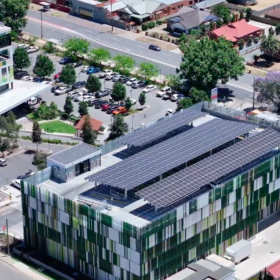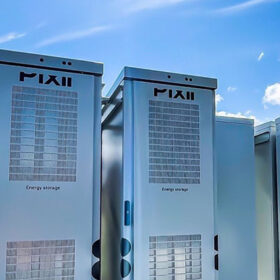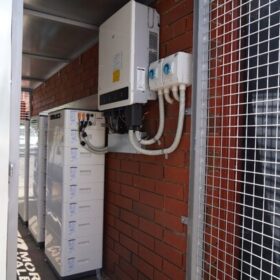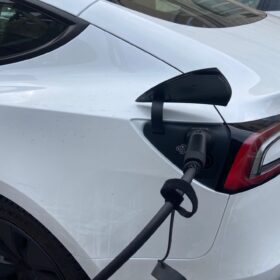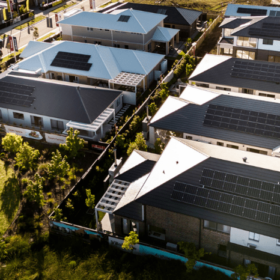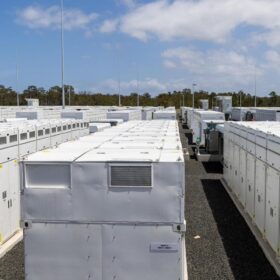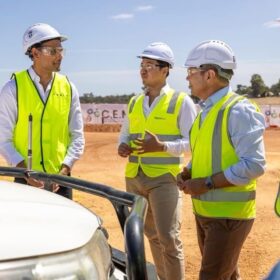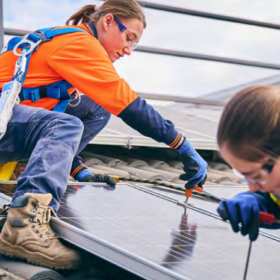Local government solar and battery initiatives win federal funding
The Australian government has released $50 million to local governments across the country to co-fund energy efficiency and electrification upgrades in round one of its community energy upgrades fund.
Pixii community batteries start trading in the national electricity market
Three New South Wales regional towns have switched on 192 kW / 530 kWh community batteries under the federal government’s Community Batteries for Household Solar program and are now trading in the National Electricity Market.
GoodWe inverter and battery system helps with local grocer’s green transition
A GoodWe energy storage system has been installed by South Australian commercial solar specialist Solaring to reduce a supermarket’s reliance on the grid and ensure energy security to safeguard products from power outages.
Research paints positive picture of used EV battery health
New Australian research around battery degradation in used electric vehicles has found average battery health exceeded 90%, even for vehicles that have travelled more than 120,000 kilometres.
AGL provides solar and storage to power Riverina almond farm
AGL Energy has completed the installation of a bespoke solar and battery energy storage project that will help power a commercial almond orchard in New South Wales with any excess power to be fed into the national electricity grid.
Solar rebate scheme notches record as axe poised on feed-in tariffs
The Victorian government’s Solar Homes rebate program continues to reach new heights with more than 78,000 rooftop PV, solar hot water and residential battery systems installed in 2024 – the most successful year on record.
NSW invests $1 billion to boost energy storage and infrastructure upgrades
The New South Wales government will channel up to $1 billion into large-scale and community batteries, pumped hydro, and virtual power plants as it seeks to ramp up investment in renewable energy generation and storage projects to support the state’s shift from coal-fired generation.
Australia’s 2024 residential battery installations exceeded 28,000 units
Residential battery installations have grown 30% since 2023 according to a Climate Council emissions reduction monitoring platform that tracks data on the uptake of renewables such as rooftop solar and household battery systems.
ARENA roadmap shines light on vehicle-to-grid charging potential
A roadmap for bidirectional electric vehicle charging in Australia, released by ARENA in partnership with RACE for 2030, is set to play a key role in guiding policy and initiatives for the widespread commercialisation of vehicle-to-grid technologies.
Tesla plans battery ‘re-manufacturing’ plant for WA
Tesla is to expand its presence in Australia with a “re-manufacturing” facility to be built at Collie in Western Australia’s southwest to service its grid-scale and residential battery energy storage products.
